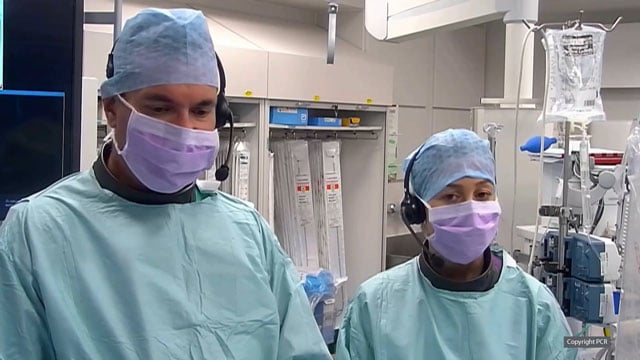
Rasha Al-Lamee
Latest contributions
EuroIntervention podcasts
17 Sep 2025
Turning Point: a new podcast series brought to you by EuroIntervention as part of our 20th anniversary celebration.

Coronary Interventions: EuroPCR 2025 highlights
22 May 2025 – From EuroPCR 2025
At EuroPCR 2025, Rasha Al-Lamee, Nieves Gonzalo, and Thomas Cuisset highlighted key advances in coronary interventions, with a strong emphasis on managing complex cases—particularly calcified lesions.
Throughout the Course, LIVE cases and expert hotlines showcased dedicated devices and evolving strategies designed specifically for these challenging lesions. Advanced...
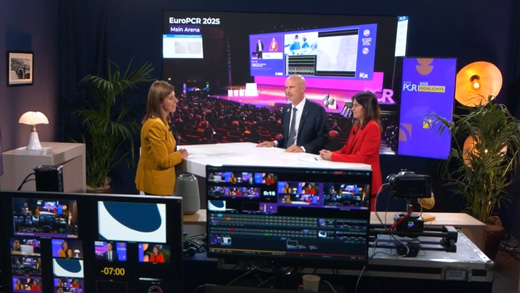
Coronary physiology: FFR and beyond
22 May 2025 – From EuroPCR 2025
Advance your understanding of coronary physiology with a focus on fractional flow reserve (FFR) and beyond. This session covers randomized trials comparing physiology-guided treatment to standard care in ANOCA, graft patency related to quantitative flow ratio, impacts of microvascular dysfunction on patient outcomes, and prognostic value...
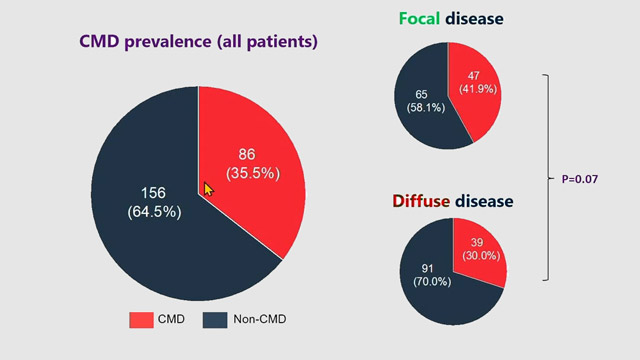
The new global era of patient care with CathWorks FFRangio
22 May 2025 – From EuroPCR 2025
This EuroPCR 2025 session highlights how CathWorks FFRangio is reshaping coronary physiology assessment worldwide. Through case-based experience and real-world data, it showcases the integration of FFRangio into routine clinical workflows—from early adoption at Clinique Pasteur in Toulouse to implementation across the UK. The session also presents...
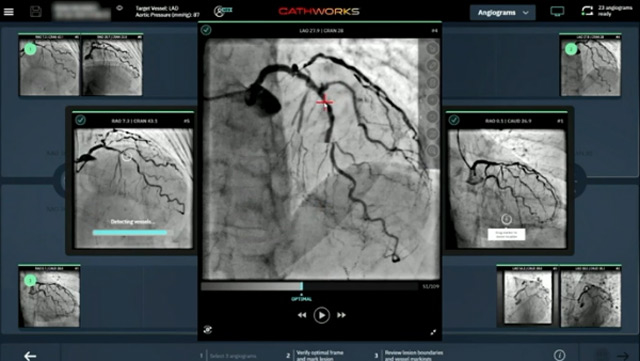
Symplicity Spyral renal denervation: more insights from clinical practice
21 May 2025 – From EuroPCR 2025
Renal denervation is gaining momentum in the management of hypertension. This EuroPCR 2025 session brings together long-term clinical experience and practical guidance on using the Symplicity Spyral™ system. Learn how to apply the latest European guidelines in daily practice, pick up valuable procedural tips from over...
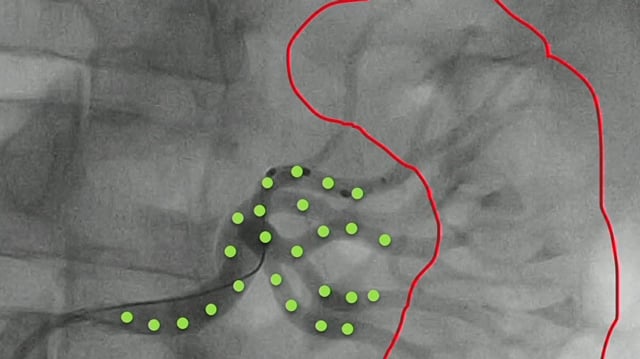
Complex multivessel disease - LIVE Case
21 May 2025 – From EuroPCR 2025
An 89-year-old male patient presented with stable angina, preserved LV function and some risk factors such as hypertension and diabetes. CT scan and angiography revealed occlusion of proximal RCA and bifurcation lesions on LAD and circumflex (medina 1,1,1). Operators treated the bifurcation lesions with provisional stenting.
Regarding...
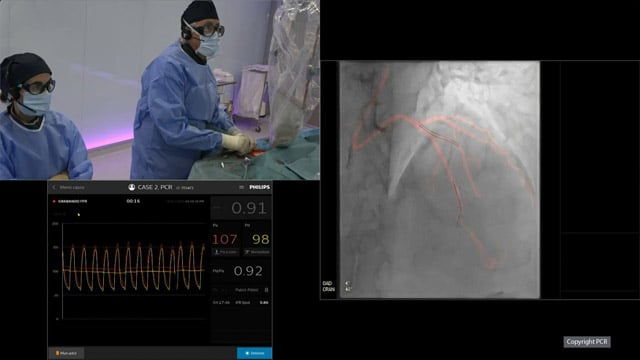
Invasive treatment of refractory angina
20 May 2025 – From EuroPCR 2025
Explore invasive treatment options for refractory angina through clinical case presentations emphasizing coronary physiology guidance, coronary microvascular disease management, and innovative therapies such as coronary sinus reducer implantation. This session highlights provocative test-guided approaches to optimize patient outcomes.
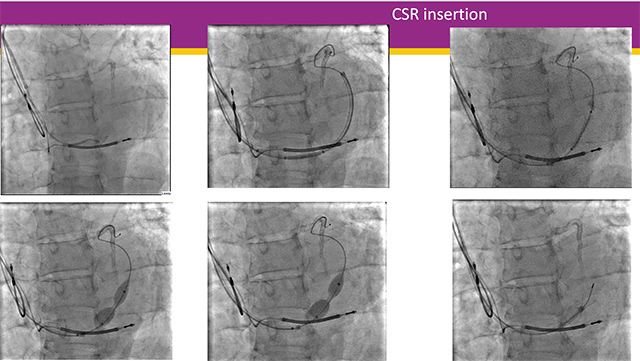
Role of PCI in the contemporary management of patients with angina and coronary disease
17 May 2024 – From EuroPCR 2024
This session aims to generate awareness about the distinct phenotypes of coronary artery disease (focal, diffuse, serial) that can be identified through contemporary physiological tools, and the implications of these phenotypes on achieving successful functional PCI results. Participants will also discuss the considerations around using PCI...
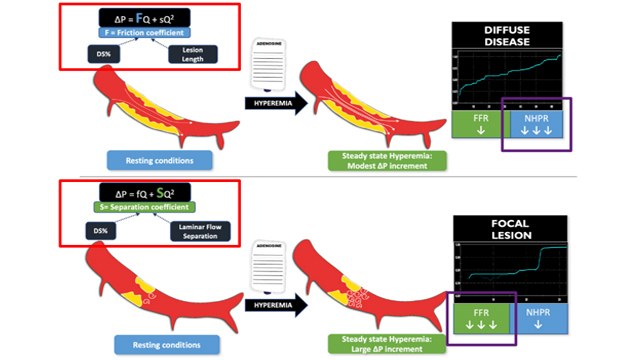
CathWorks FFRangio - Enhancing patient care
16 May 2024 – From EuroPCR 2024
Explore this EuroPCR 2024 session to gain an in-depth understanding of how FFRangio utilizes routine angiograms to provide valuable insights, delve into the integration of FFRangio-guided decisions for optimizing patient care, and examine the practical application of FFRangio in routine clinical practice, encompassing its benefits and challenges.
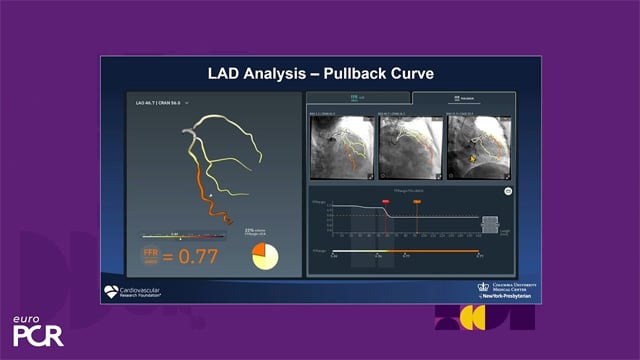
Multivessel disease PCI guided by physiology and IVUS - LIVE case
16 May 2024 – From EuroPCR 2024
A 78-year-old woman with hypertension, dyslipidemia, and obesity, presented with angina CCS2 and preserved LV function. The coronary angiogram showed stenosis in the RCA (proximal and mid), CX, and calcified proximal and mid LAD involving D1 and D2.
The operators performed PCI on the RCA (1 stent)...
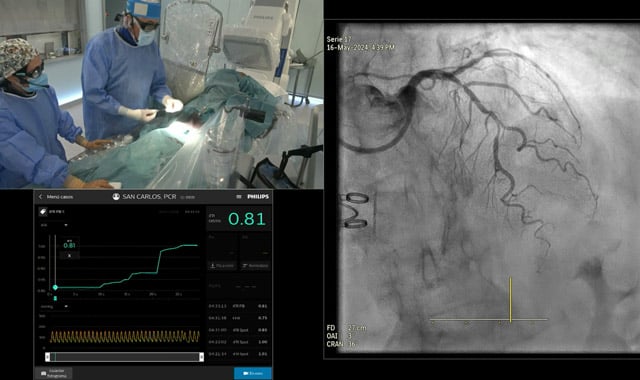
Personalised Vascular Care Award - Competition
16 May 2024 – From EuroPCR 2024
This session features a competition for the Personalised Vascular Care Award, showcasing selected abstracts on various aspects of personalised vascular care. The presentations cover topics such as the evaluation of myocardial bridges, the relationship between IMR and FFR, the use of contrast-derived indices of coronary microvascular...
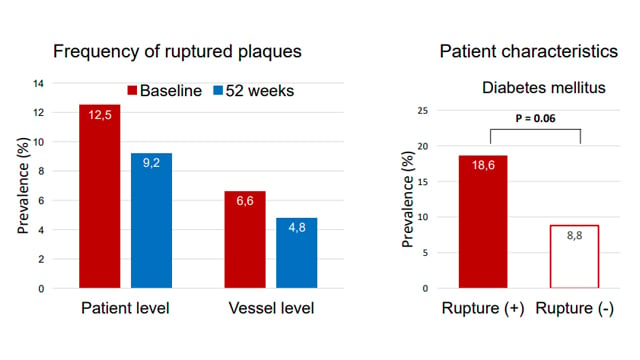
The turning point in hypertension care: Symplicity Spyral renal denervation in practice
15 May 2024 – From EuroPCR 2024
Explore this session to grasp the FDA-approved status of renal denervation, its safety and efficacy shown in numerous studies with lasting effects, and the importance of multidisciplinary discussions for successful indications. Consult also the session for updated recommendations on renal denervation in hypertension treatment guidelines, procedural safety...
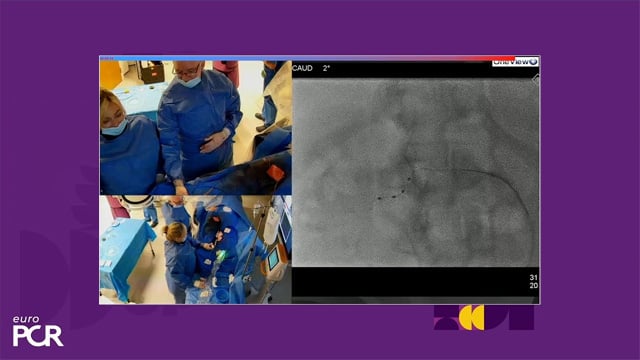
Hotline: advances in coronary physiology
14 May 2024 – From EuroPCR 2024
This hotline session explores the latest advancements in coronary physiology and their implications for percutaneous coronary intervention (PCI). Topics covered include the influence of pathophysiological patterns of coronary artery disease on the safety and efficacy of PCI, the prognostic value of myocardial ischemic burden in STEMI...
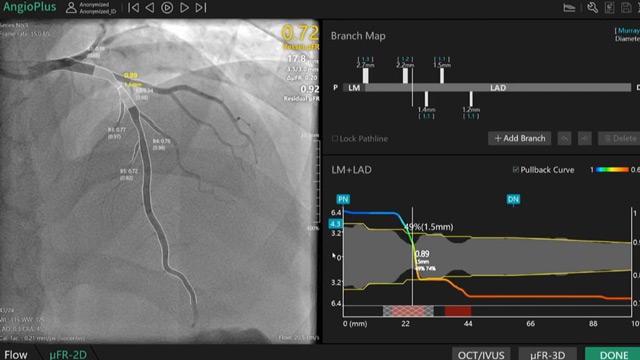
After ORBITA 2, what is the role of PCI in the contemporary management of patients with angina and coronary disease?
16 May 2024 – From EuroPCR 2024
Emanuele Barbato interviews Rasha Al-Lamee, the principal investigator of the ORBITA 2 trial, about the current role of percutaneous coronary intervention (PCI). Unlike ORBITA 1, ORBITA 2 focused on the effects of angioplasty as a monotherapy, without prior anti-angina treatment. The results showed that angioplasty improved symptoms...
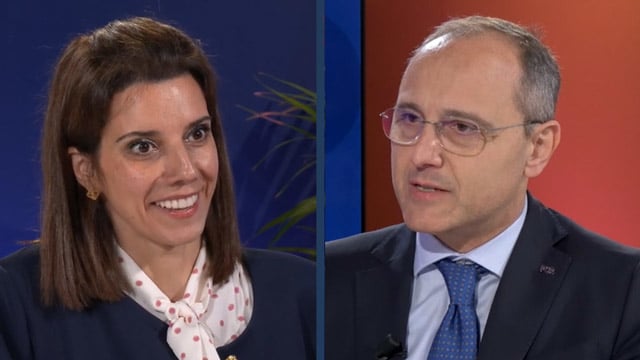
Coronary sinus reducer for the treatment of refractory angina: A randomised, placebo-controlled trial (ORBITA-COSMIC)
08 Apr 2024
Aaysha Cader interviews Rasha Al-Lamee and Michael Foley about the results of the ORBITA-COSMIC trial presented at ACC.24 in Atlanta.
Results showed that coronary sinus reducer relieved angina symptoms but lacked evidence of increased blood flow to the heart. While beneficial for refractory angina patients, its mechanism remains...

Author

Author

Author

ORBITA-2 - Percutaneous coronary intervention for stable angina: A randomized, placebo-controlled trial
12 Nov 2023
Luis Ortega Paz interviews Rasha Al-Lamee and Christopher Rajkumar on the results of ORBITA-2 randomized placebo-controlled trial, which were presented at the AHA 2023 Congress in Philadelphia.

Author

Author

Author
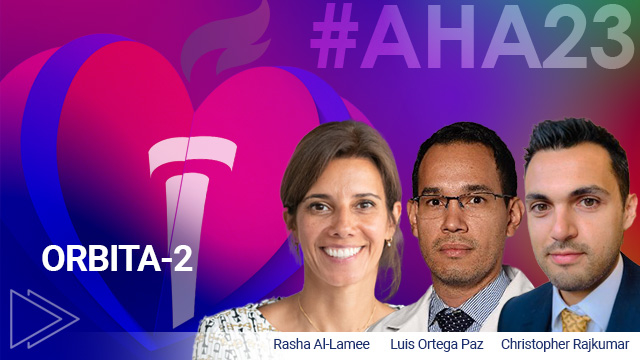
EuroPCR 2023 Hotlines/Late-Breaking Trials: focus on wire and image-based physiology
18 May 2023 – From EuroPCR 2023
Find out more about a series of studies focusing on wire and image based physiology: Coronary microvascular function and CT coronary angiography trial aiming to assess whether endotype diagnosis informed by coronay function testing vs angiography improved angina; a 5-year follow up of the DEFINE FLAIR;...
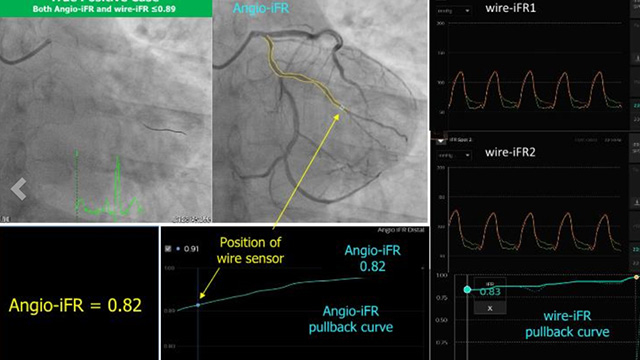
Multivessel disease - Which patients for PCI, CABG or medical treatment?
18 May 2023 – From EuroPCR 2023
In this series of slides, uncover optimal treatments for multivessel disease: Evaluate revascularisation necessity, pinpoint when CABG excels, and identify prime scenarios for PCI.
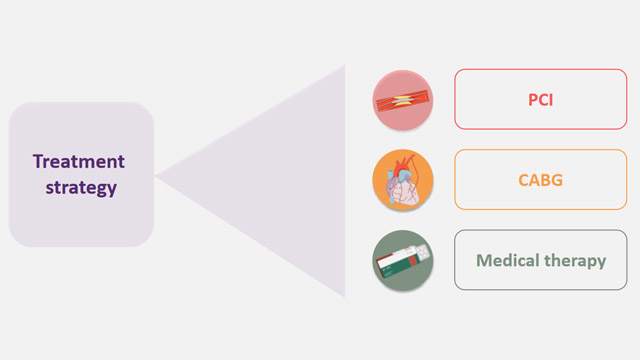
Physiologic guidance and optimisation in multivessel disease
16 May 2023 – From EuroPCR 2023
Follow the case study of this 70-year-old ex-smoker male patient with HTN, dyslipidemia, previous primary PCI to proximal and mid LAD because of anterolateral STEMI, presenting with syncope, and find out, through the debates around his treatment, how to use physiology in 2023.

Intracoronary imaging and intracoronary physiology - Expert interview
In this video, Rasha Al-Lamee describes the best practices of imaging vs physiology. Find out more about the added value of both intracoronary imaging and physiology in multivessel and left main diseases, as well as clinical evidence to support the use of both techniques.

What did 2022 tell us so far in interventions? Essential publications from the EuroIntervention Journal and the European Heart Journal
19 May 2022 – From EuroPCR 2022
This EuroPCR 2022 session lists the best EIJ and EHJ publications in terms of coronary interventions, intravascular imaging and physiology, interventions for mitral and tricuspid valve disease, and interventions for aortic valve disease.
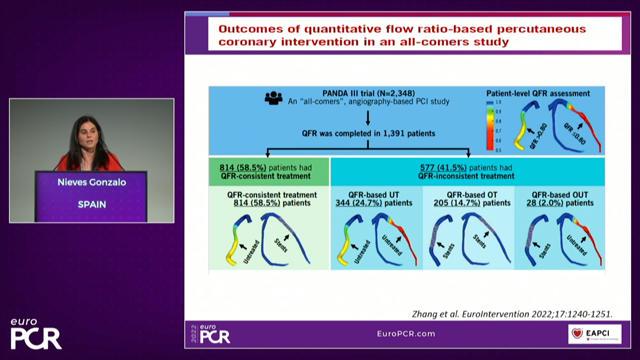
Role of physiology during PCI
19 May 2022 – From EuroPCR 2022
Follow, LIVE from Barcelona, Spain, the case of a 61-year-old female patient, former smoker, diabetic, suffering from hypercholesterolemia, dyspnea, and chest pain on exertion for years, admitted for NYHA III heart failure, and discover the importance of physiology and intracoronary imaging in daily practice.
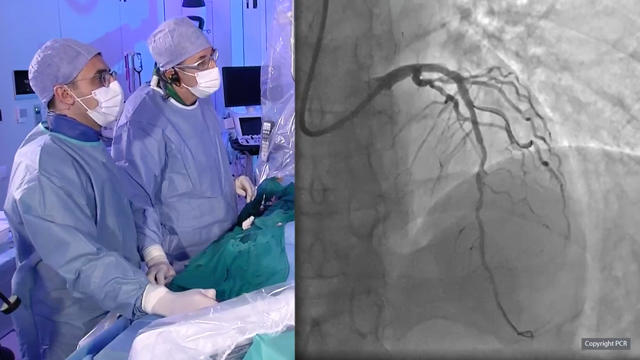
Challenging and atypical lesions in NSTEMI
19 May 2022 – From EuroPCR 2022
Consult this session on NSTEMI to discover some challenging cases with atypical lesions, such as: a very long sequential SVG in an acute setting, a right coronary artery ostial in-stent restenosis, a severe three-vessels coronary artery disease, and more!
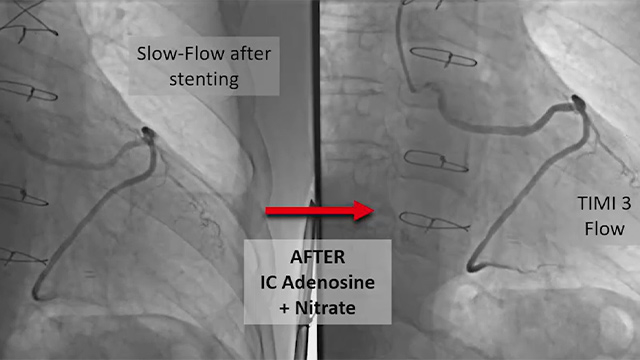
Antithrombotics in practice after PCI: from evidence to individual patient management
17 May 2022 – From EuroPCR 2022
In this session, compare the case of a typical ACS PCI patient with two cases with chronic settings to see whether there are other options to be considered as far as antithrombotic strategy is concerned.
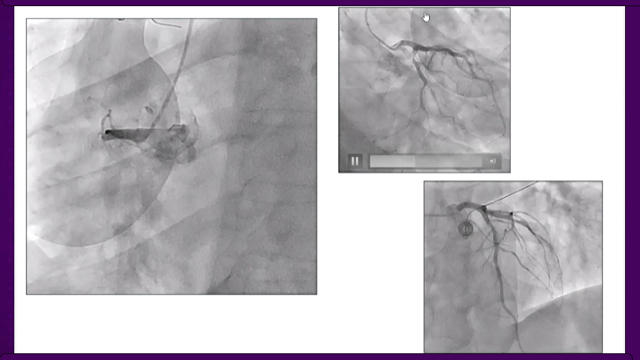
Advances in renal denervation: from patient selection to procedure
17 May 2022 – From EuroPCR 2022
For this EuroPCR 2022 session, Felix Mahfoud is joined by David Kandzari, Rasha Al-Lamee, Flavio Ribichini, and Andrew Sharp to talk about renal denervation: hear real-life experiences and get the latest preclinical and clinical data on the long-term safety and efficacy of the radiofrequency renal denervation...
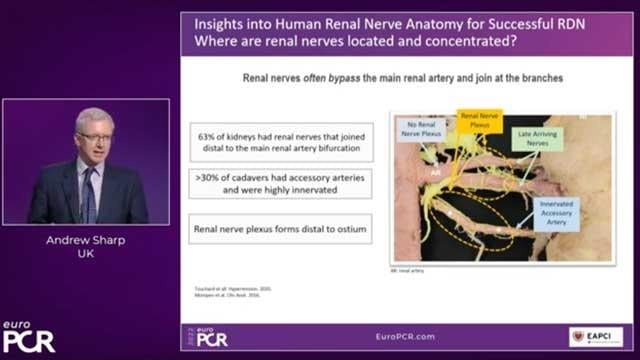
Why physiology and co-reg is helpful in treating patients with multivessel disease/diffused disease
20 May 2021 – From EuroPCR 2021
Watch this session presented by Sukhjinder Nijjer, Nick Curzen, Rasha Al-Lamee and Sayan Sen in order to learn about the new pressure guide wire OmniWire and workflow enhancement with Azurion and IntraSight, to understand how "interventional physiology" can guide PCI in diffuse, multivessel coronary artery disease, and to learn how...
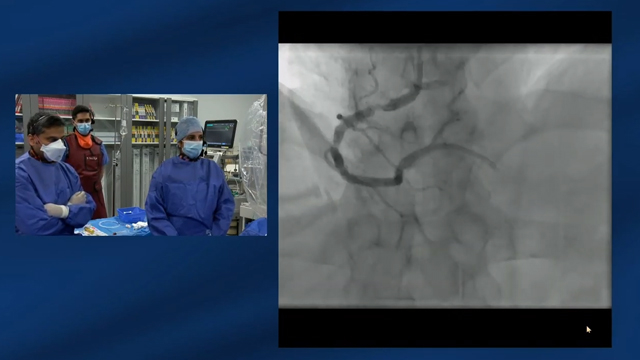
EuroIntervention - Most discussed papers of the year
19 May 2021 – From EuroPCR 2021
Watch this session if you want to know the top 3 most discussed papers of the year which concern management of myocardial revascularisation failure, the impact of COVID-19 pandemic on interventional cardiology practice and Ischaemia witch non-obstructive coronary arteries.
This session was originally presented during EuroPCR 2021.
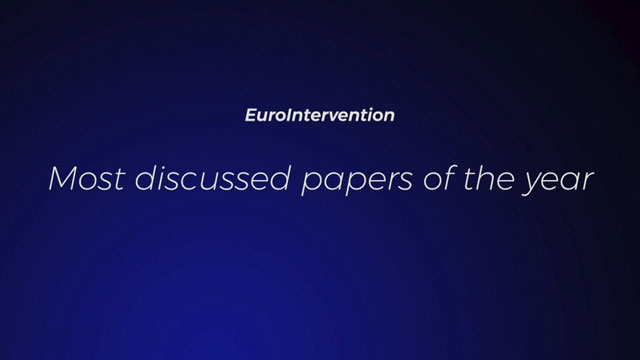
Improving personalised vascular care using novel technologies: how can I start?
19 May 2021 – From EuroPCR 2021
Watch this session presented by Salvatore Brugaletta, Nick West, Rasha Al-Lamee, Will Davies, Angela H.E.M. Maas and William Wijns in order to learn more about personalised vascular healthcare, to understand the value of personalised vascular healthcare, and to see practical examples on how this can be implemented in your practice.
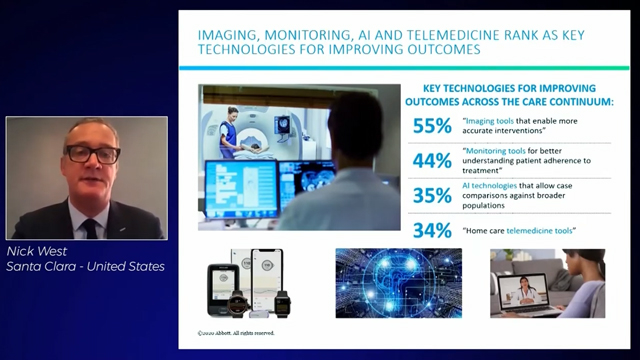
Meta-analysis of elective coronary revascularization vs medical therapy alone
18 May 2021 – From EuroPCR 2021
This session, originally broadcast during EuroPCR 2021, presents a meta-analysis based on 25 trials dealing with revascularization in patients with chronic coronary syndromes and enables our experts to discuss the strengths and weaknesses of this study.

TAVI in a patient with coronary artery disease - Session with LIVE demonstration
18 May 2021 – From EuroPCR 2021
Watch this session if you want to discuss the available data for treating coronary artery disease in patients undergoing TAVI and to understand the role of FFR/IFR in coronary artery disease assessment prior to TAVI.
This session was originally presented during EuroPCR 2021.
